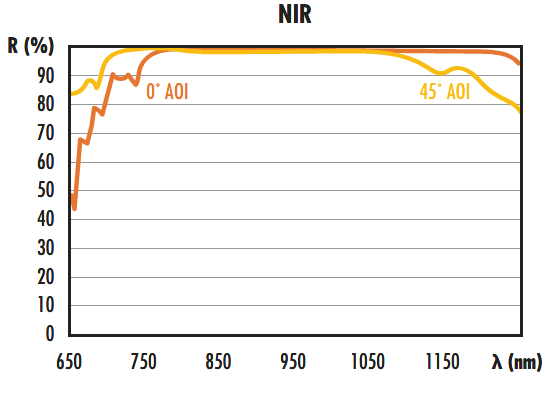
 TECHSPEC® components are designed, specified, or manufactured by Edmund Optics. Learn More
TECHSPEC® components are designed, specified, or manufactured by Edmund Optics. Learn More
TECHSPEC® Broadband Dielectric λ/10 Mirrors are ideal for beam steering or reflection applications utilizing multiple laser sources. These mirrors feature greater than 99% reflection, significantly better than metal-coated mirrors, and increase system performance by minimizing energy loss. The highly durable fused silica substrate offers a low thermal expansion coefficient and a high abrasion resistance. TECHSPEC® Broadband Dielectric λ/10 Mirrors are designed for applications from the UV to the near-infrared spectra.

or view regional numbers
QUOTE TOOL
enter stock numbers to begin
Copyright 2024, Edmund Optics Singapore Pte. Ltd, 18 Woodlands Loop #04-00, Singapore 738100
California Consumer Privacy Acts (CCPA): Do Not Sell or Share My Personal Information
California Transparency in Supply Chains Act